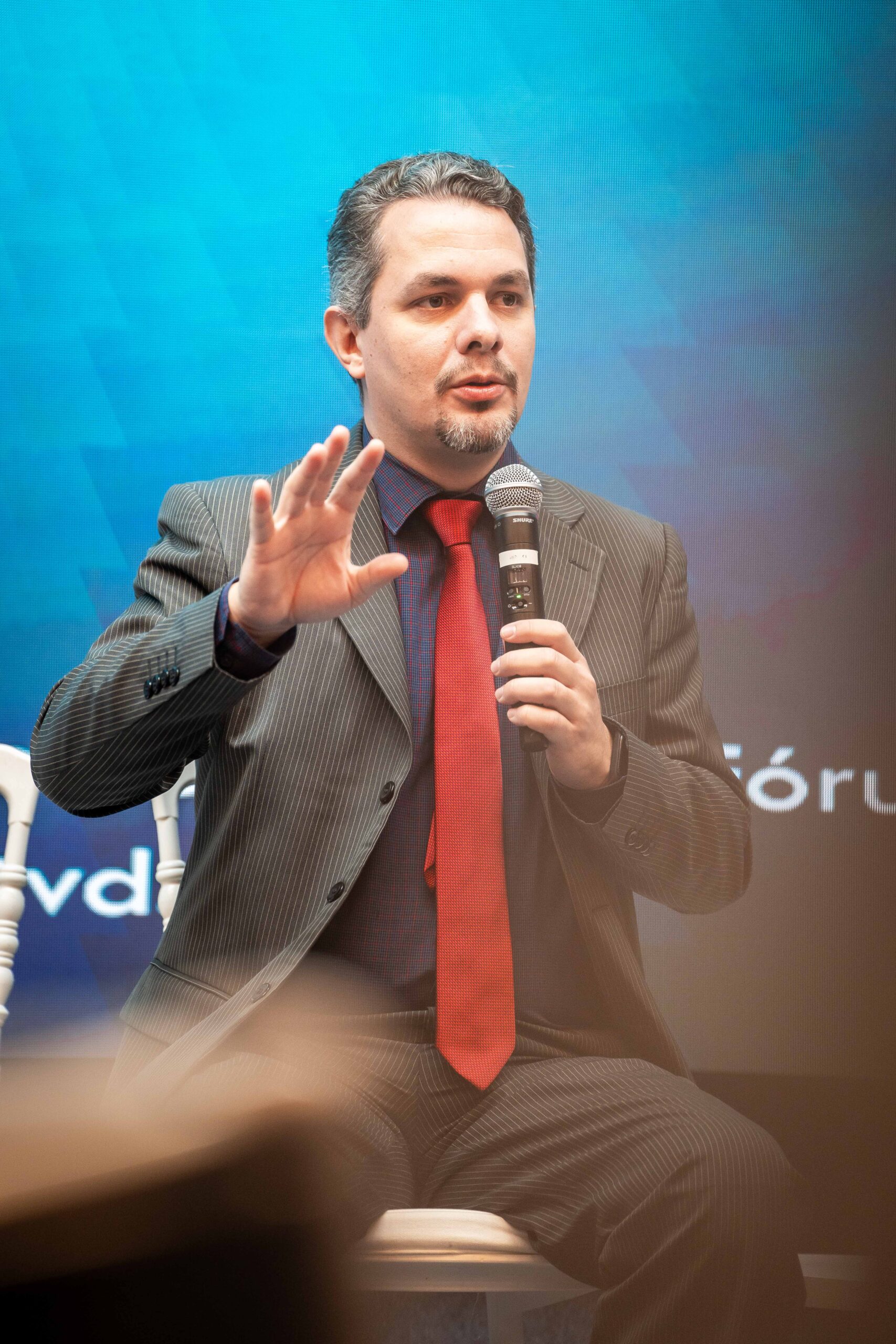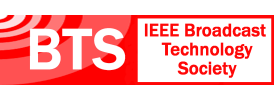- About
- Members
- Sponsors
- Subcommittees
- Technical Documents
- News
- Events
- Spotlight ATSC 3.0
- Contact Us
- Member Login
- Member Meetings
- Advanced Search
Search Site
Member Links
- About
- Members
- Sponsors
- Subcommittees
- Technical Documents
- News
- Events
- Spotlight ATSC 3.0
- Contact Us
- Member Login
- Member Meetings
- Advanced Search
Someone You Should Know: Incoming Vice President of Standards Development
Posted on July 16, 2025 in ATSC News
 When Luiz Fausto steps into his new role as ATSC’s Vice President of Standards Development in August 2025, he’ll bring with him not only deep technical expertise but also a rich global perspective shaped by years of work harmonizing digital TV standards across borders. For those familiar with the evolution of TV 3.0 in Brazil—or the broader ecosystem of global broadcasting standards—Fausto is a name that resonates with insight, precision, and collaborative leadership.
When Luiz Fausto steps into his new role as ATSC’s Vice President of Standards Development in August 2025, he’ll bring with him not only deep technical expertise but also a rich global perspective shaped by years of work harmonizing digital TV standards across borders. For those familiar with the evolution of TV 3.0 in Brazil—or the broader ecosystem of global broadcasting standards—Fausto is a name that resonates with insight, precision, and collaborative leadership.
Currently serving as a Regulatory Technology Specialist at Globo TV Network in Brazil, Fausto’s daily work centers on the development and review of technical standards and operational guidelines for the next generation of broadcasting—TV 3.0 (DTV+). Through his active participation in the SBTVD Forum, he plays a pivotal role in shaping the digital TV landscape in Brazil, while also serving as a crucial liaison to other Standards Development Organizations (SDOs). His work doesn’t stop at the national level. Fausto regularly contributes to CITEL PCC.II and ITU-R Study Group 6, ensuring that Brazil’s voice is present in global conversations on digital TV.
As ATSC’s new VP of Standards Development, he will focus on expanding ATSC standards internationally, building educational programs to support adoption, and strengthening ATSC’s voice within international organizations such as ITU, TSDSI, and CITEL. Supporting Technology Groups, Specialist Groups, and Ad Hoc Groups will also be part of his daily mission—alongside reinforcing ties with fellow SDOs to ensure cohesive global progress.
Fausto’s path to ATSC started long before his new title. His journey began through his leadership within Brazil’s TV 3.0 Project, where he oversaw the entire lifecycle—from establishing requirements to finalizing recommendations. During this process, ATSC 3.0 technologies emerged as front-runners, proving to be state-of-the-art in most aspects. “As technical leader, I worked from defining the Call for Proposals in 2020 to delivering the draft technical standards to the Ministry of Communications in 2024,” Fausto shared. “ATSC 3.0 showed remarkable efficiency and flexibility, leading to its central role in the Brazilian TV 3.0 technology set.”
Although not previously a formal member of ATSC, Fausto has collaborated extensively with its representatives through Globo, SET, the SBTVD Forum, CITEL, and ITU—making his transition into the VP role a natural continuation of a well-established partnership.

For Fausto, the future of ATSC 3.0 is filled with potential. What excites him the most is ATSC 3.0 is the first IP-based digital TV system, and it stands out for its energy, spectrum efficiency with an architecture that is both powerful and extensible—designed to evolve. With new use cases emerging across broadcast, broadband, mobility, and beyond, he sees ATSC 3.0 as a foundational technology that can adapt to serve a diverse and changing global media landscape.
 Away from his professional life, Luiz Fausto is a devoted family man with a passion for culture and creativity. He and his wife are proud parents to two children—a 14 year-old daughter and a 11 year-old son. “Traveling with my family is one of my greatest joys,” he says. “We love discovering new places and cultures together.”
Away from his professional life, Luiz Fausto is a devoted family man with a passion for culture and creativity. He and his wife are proud parents to two children—a 14 year-old daughter and a 11 year-old son. “Traveling with my family is one of my greatest joys,” he says. “We love discovering new places and cultures together.”

Music plays a central role in his personal life, too. Although he once considered becoming a musician—he studied piano, guitar, choral conducting, and even sang in choirs—these days, music is more of a soulful retreat. “It’s how I recharge and reconnect,” he said.
He’s currently immersed in Machines Like Me by Ian McEwan, a novel that explores the ethical frontiers of artificial intelligence—an apt metaphor for someone who lives at the intersection of humanity and high-tech.
As for TV? While he doesn’t binge-watch, he gravitates toward thought-provoking films like Interstellar—reflective of his taste for content that entertains and challenges.
With Luiz Fausto joining the ATSC leadership team, the organization gains not just a new VP—but a seasoned global collaborator whose vision for the future of digital TV is rooted in both rigor and imagination. Whether he’s bridging standards across continents or strumming a guitar at home, Fausto exemplifies the kind of thoughtful leadership that’s helping shape the next chapter of global broadcasting.
Indeed, Luiz Fausto is Someone You Should Know.
Posted in ATSC News
News Categories
News Archives
Subscribe
Subscribe to The Standard, our monthly newsletter. Learn More
Join ATSC
ATSC is a membership organization with both voting and observer categories. Voting members include corporations, nonprofit organizations, and government entities, and they participate actively in the work of ATSC. Observers are individuals or entities not eligible to be a voting member.
Subscribe to our Newsletter
Subscribe to The Standard, our monthly newsletter, to stay up-to-date with ATSC news and events around the world.
Site Links
Contact Us
ATSC
1300 I Street NW, Suite 400E
Washington, DC 20005 USA
Do you have questions about ATSC?
About ATSC
ATSC, the Broadcast Standards Association, is an international, non-profit organization developing voluntary standards and recommended practices for digital terrestrial broadcasting. Serving as an essential force in the broadcasting industry, ATSC guides the seamless integration of broadcast and telecom standards to drive the industry forward. Currently, the ATSC 3.0 Standard is providing the best possible solution for expanding the potential of the broadcast spectrum beyond its traditional application to meet changing needs. From conventional television to innovative digital data services, ATSC has one clear goal: to empower the broadcasting ecosystem like never before.
© 2026 ATSC
































